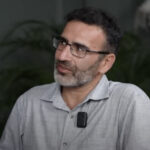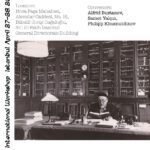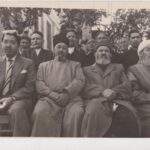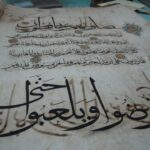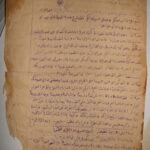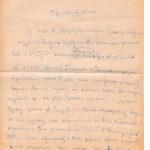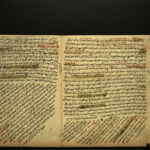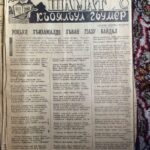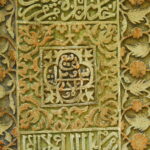About us

The main objective of this ERC Starting project is to write a comprehensive history of Muslim individuality in Russia since the eighteenth century up to the years of Perestroika. This research takes the practice of building private archival collections as a starting point in analyzing the models and concrete forms of self-conception. We assume that the very process of collecting ego-documents by individuals in the course of their lives can be perceived as an autobiographic act and needs to be studied accordingly. Therefore, our project problematizes not only the separate sources in which individuals describe themselves, be that life writing narratives or photographs, but also the private archives as a space of self-cultivation. For this reason, the regular fieldwork across the Russian Federation and beyond to work with private collections in situ or analyze them as part of the state archival holdings occupy an important place in our research agenda.
News
Can the Anthropology of Islam be Post-Secular?
I would expect a mutual disregard of (semi-) secular scholars and (semi-) religious figures. The former would blame the imams on account of their ignorance. The latter would claim that Orientalists are the enemies of Islam. In our case, however, there is a degree of mutual interest that I, on my behalf, attempt to cherish, develop, and reflect upon. What we see here is that a random exchange over matters of exegesis has morphed into a debate at the intersection of Western academia and mujaddidi reasoning. I find it crucially important that one and the same manuscript can produce alternative readings, which become themselves generative of an intellectual conversation in the crucible of a post-secular environment. Neither side can claim absolute authority over the text and it is through a dialogic interaction that one can hope to achieve a nuanced understanding of both the historical artefact and its significance in the present among members of a Sufi brotherhood.
MoreShamil Shikhaliev’s interview on Soviet Islam
MIND’s postdoc Shamil Shikhaliev gave an interview on the history of Islam in Soviet Daghestan. This material is part of the podcast NaRakhate, no 19
MoreEthnography of Book Collections in the Islamicate World
Researchers habitually employ in their work the ‘archives’ of Muslims, be that the private or state collections. Often scholars focus on the concrete sources and do not ask questions about the archival ecology that enables the circulation and preservation of sources. Our seminar places the archival collections in the Islamicate world at the centre of inquiry. We are interested in the provenance research, the organizational forms of archives, the significance of the colonial pasts for the history of book collections as well as the impact of the archival structures on scholarly practices, representation of sources and their marginalization. Our seminar builds on the decolonial thread in rethinking the modern forms of knowledge production in museums, archives, and universities and attempts to reconsider the role of archives in the Islamicate world. Special attention will be paid to individual experiences of the archive builders, their curators and researchers – this is why we speak of the ethnography of book collections.
MoreDatabases
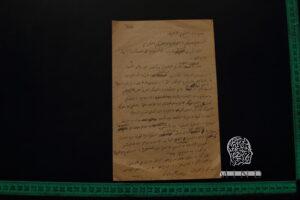
The letter for Mufti Mahmud Gekkiev
Keywords: Mahmud Gekkiyev, North Caucasus Spiritual Administration
Location: Makhachkala
Person:
Author: Magomed-Said Saidov
Year: 1980
People
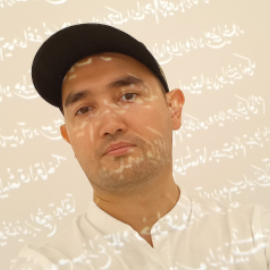
Dr. Alfrid Bustanov
Dr. Alfrid Bustanov is the Principal Investigator of the MIND. His academic interests currently center on forms of self-fashioning in various spatial contexts. He explores the entanglement of emotions, bodily practices, material objects, and space. Alfrid combines his expertise in state and private archives across the Russian Federation with anthropological methods. He received his Ph.D. from Amsterdam University in 2013 and since then has published widely on various topics of Islam in Russia, both past and present.
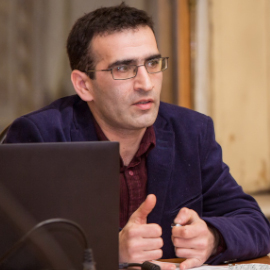
Dr. Shamil Shikhaliev
Dr. Shamil Shikhaliev is a postdoc within the MIND programme. Shamil possesses unique experience in the study of Muslim written cultures of the North Caucaus. Currently, he is writing a monograph devoted to the private archive of Magomed-Said Saidov (1902-1985), an eminent Soviet Arabist quo Muslim scholar. In his project Shamil looks at the ways how Muslim personality was articulated through archival practices. Over the last decade Shamil has been part of the regular manuscript expeditions that yielded a lot of primary material on Muslim individuality in Russia.

Galiia Muratova
Galiia Muratova is a PhD candidate at the department of European Studies, University of Amsterdam. In her dissertation Galiia analyses the interplay of visuality and textuality in personal archives of Soviet Muslims. In her research she combines the historical and anthropological approaches. By looking at the private archives of photography Galiia hopes to describe the models that individuals employed to perform their subjectivity. Galiia has a background in Middle Eastern studies that she studied at the Oriental Department of St Petersburg University. Additionally, Galiia is a part of the ARTES PhD-representatives group and serves as a PhD-representative at the Department Board of European Studies at the University of Amsterdam.
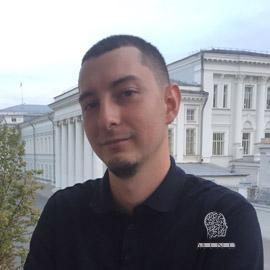
Mansur Gazimzianov
Mansur Gazimzianov is a PhD candidate at the department of European Studies, University of Amsterdam. In his dissertation Mansur looks at the autobiographical texts produced by Muslims in Imperial and Soviet Russia. His project lies at the crossroads of several disciplines, such as history, comparative literature, and cultural studies. Mansur received his BA in Islamic studies at the Kazan Federal University and MA in History at the European University at St. Petersburg.






